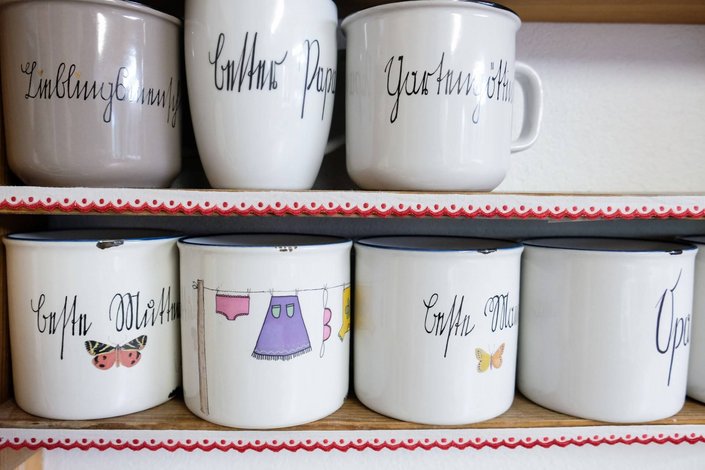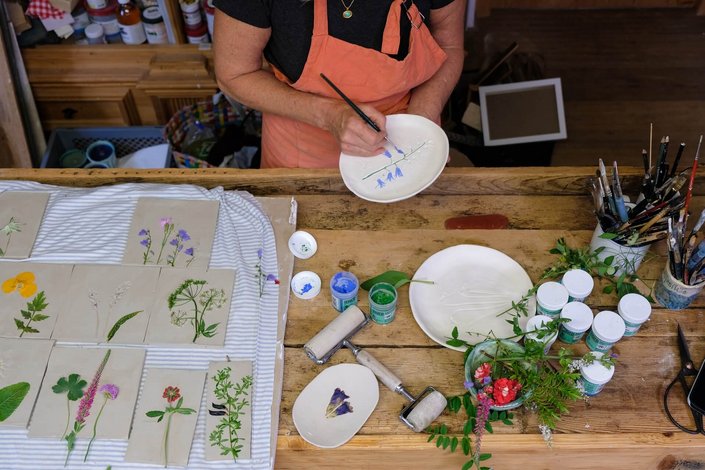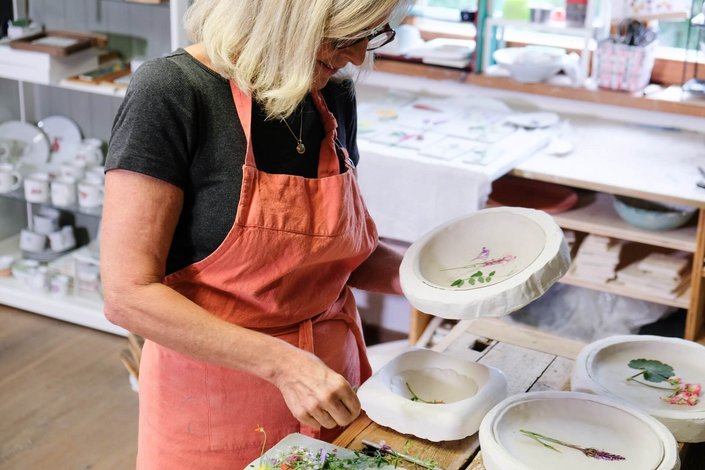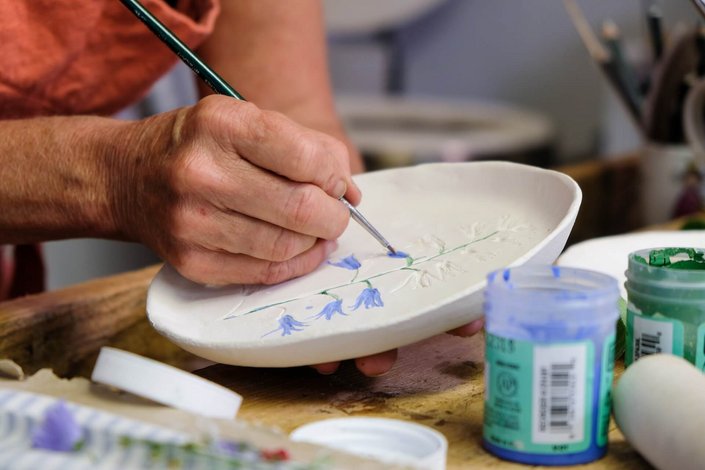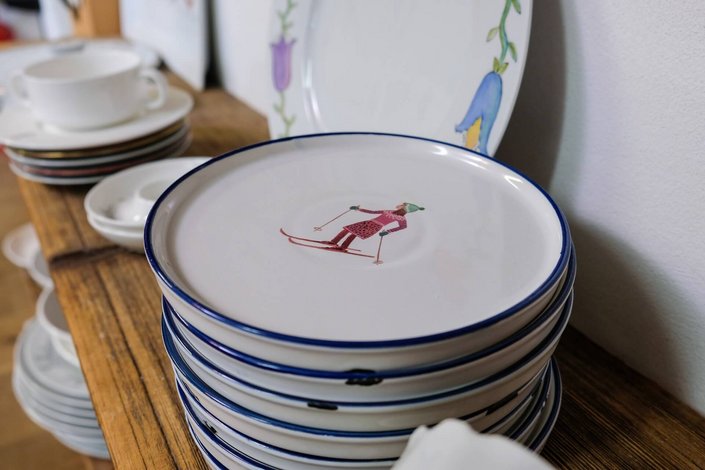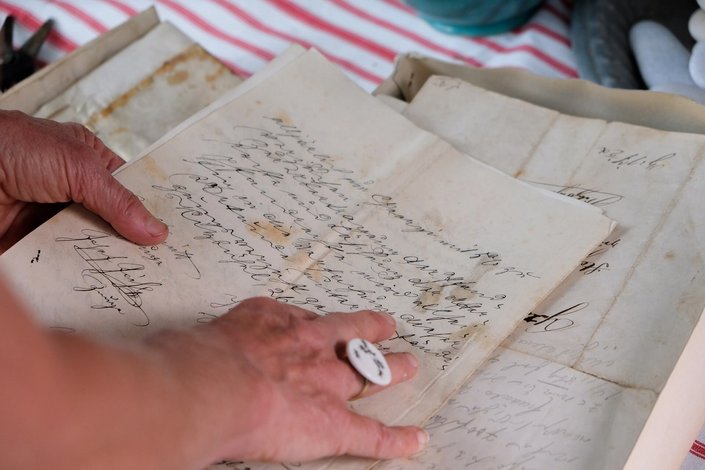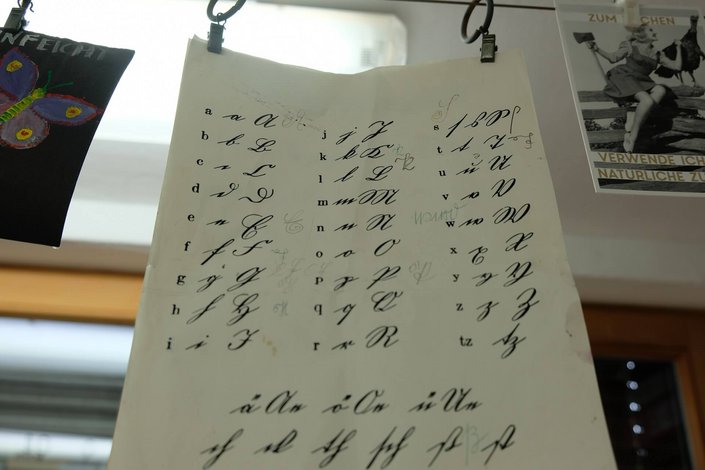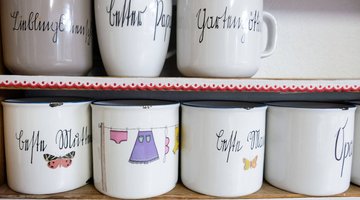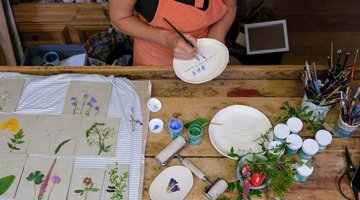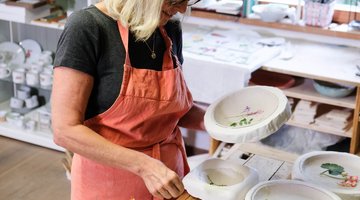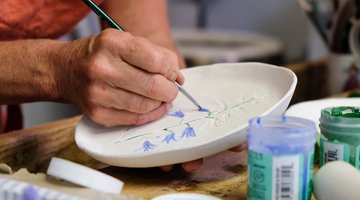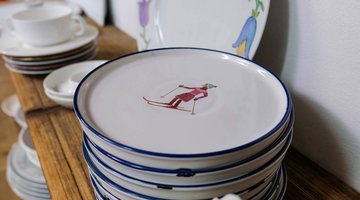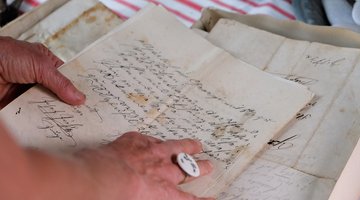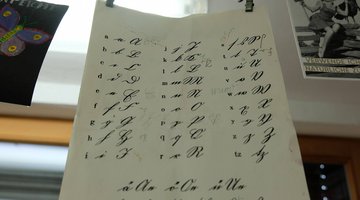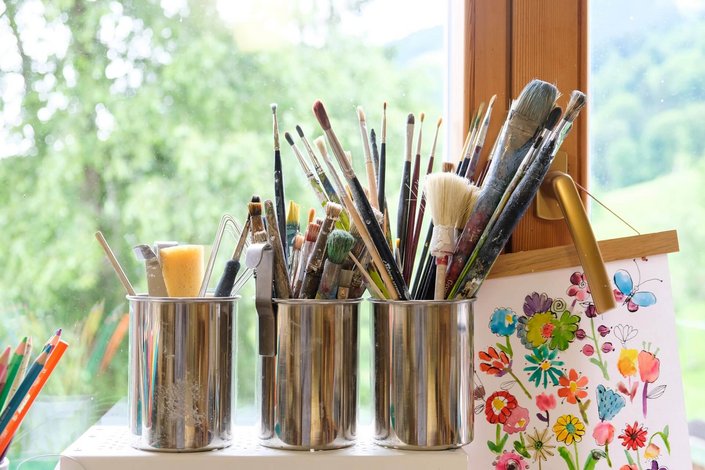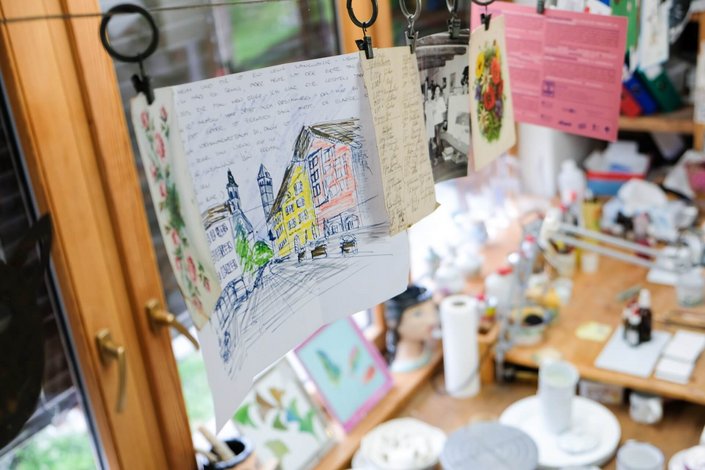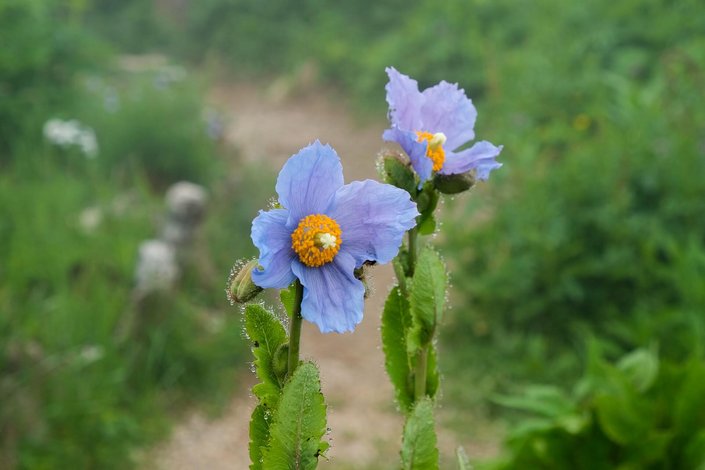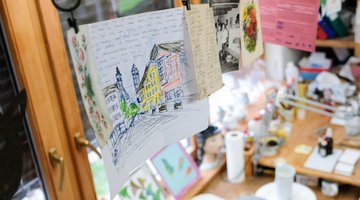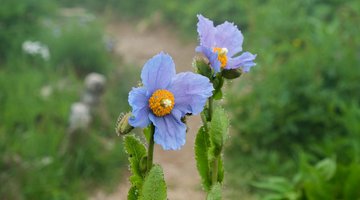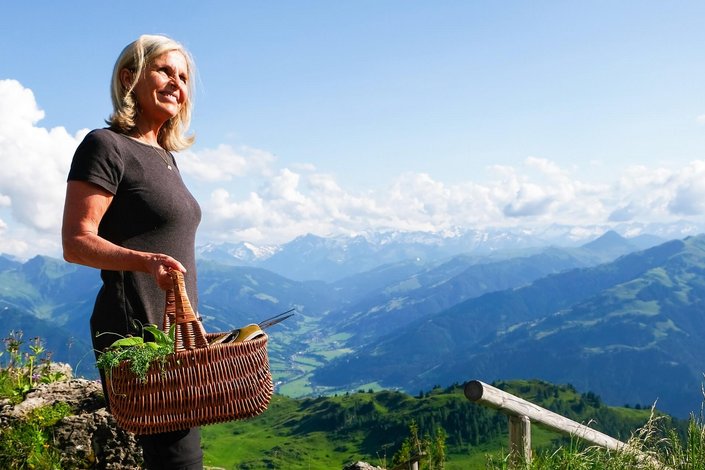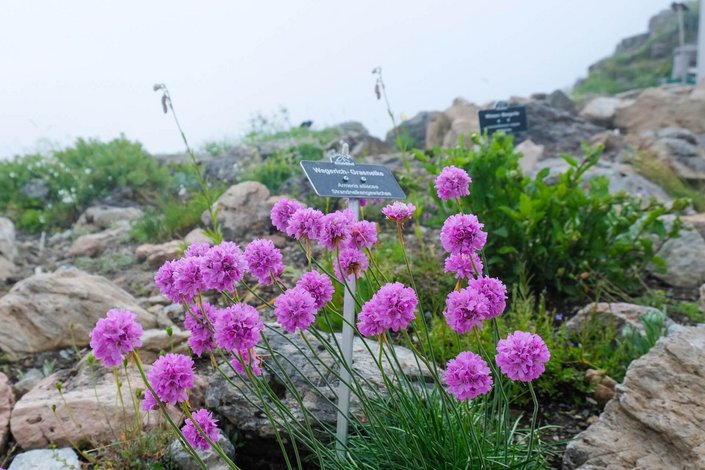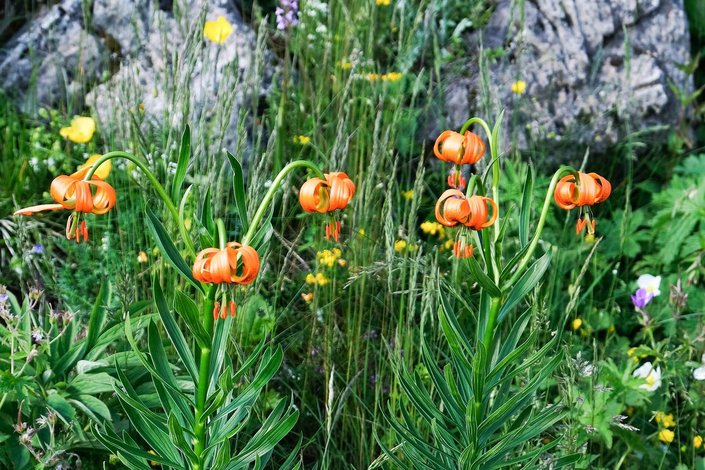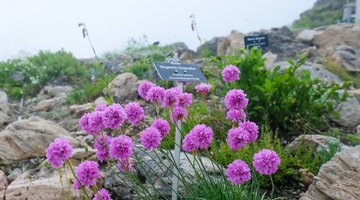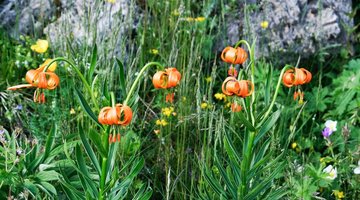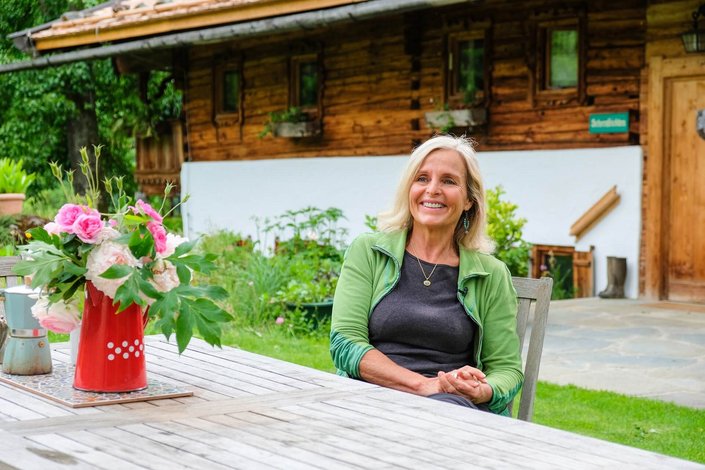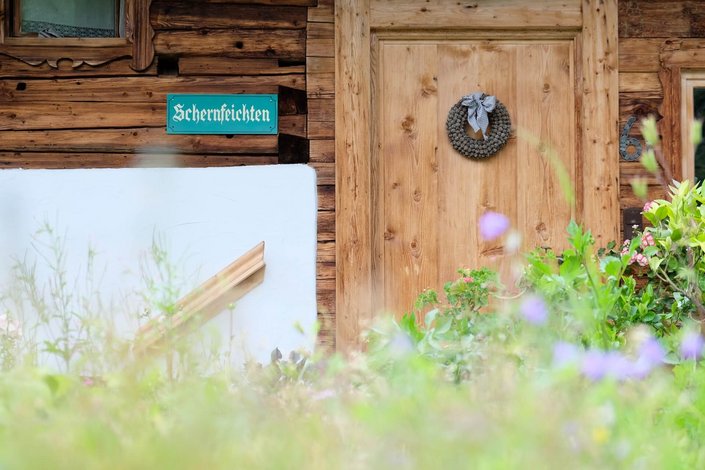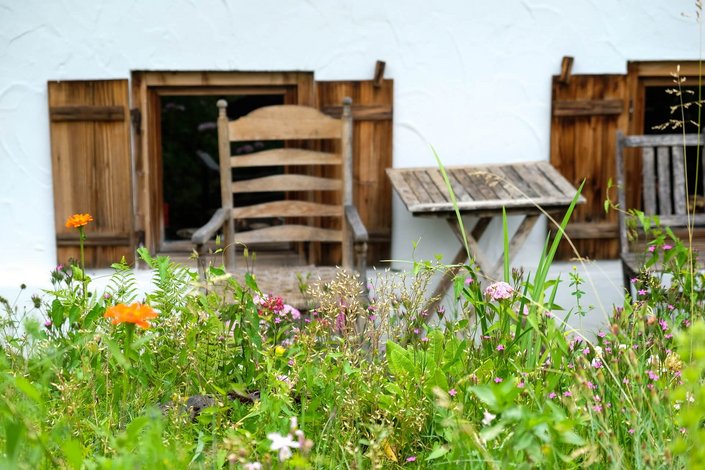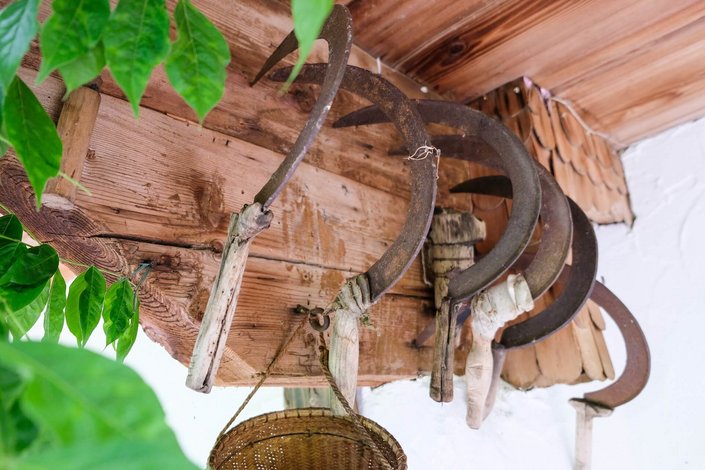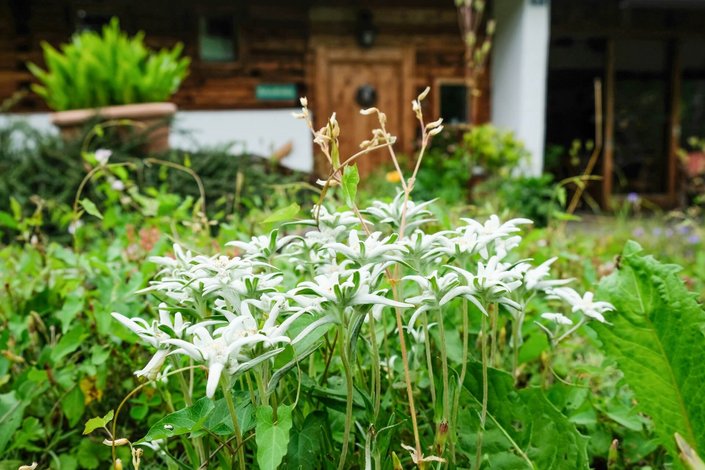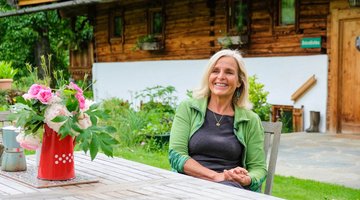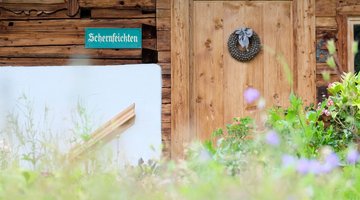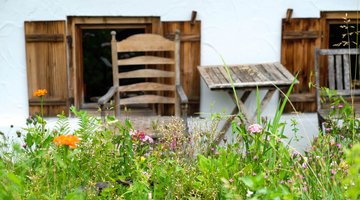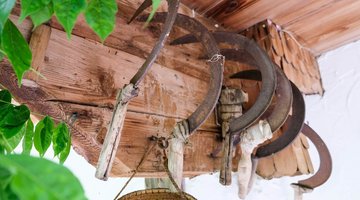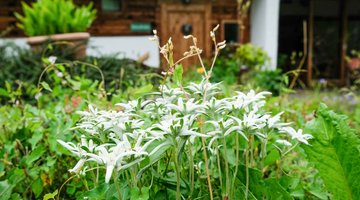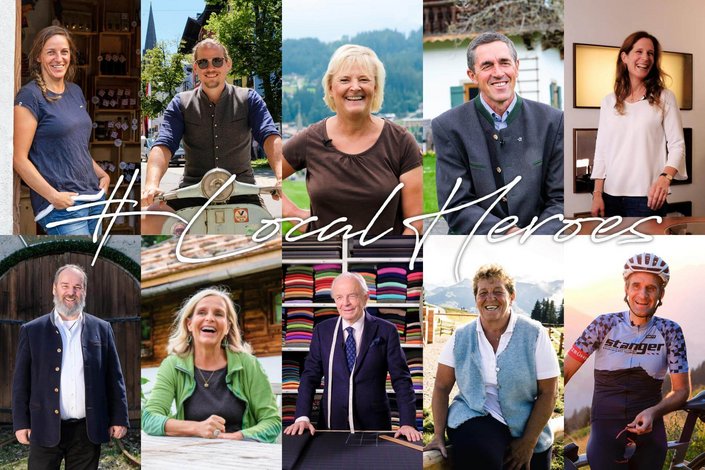The Alpine flower garden was established on the Kitzbüheler Horn in 1984. The meadowland was first cleared from the rocks by the parents of Barbara Schmidt, Eva and Toni Hofer, in collaboration with the Kitzbühel tourist board. They then created the Alpine flower garden here with great attention to detail. The idea for the Alpine flower garden originally came from the operations manager of the Kitzbüheler Hornbahnen cable car at that time. Today the mountain railway company, Bergbahn AG Kitzbühel, holds joint responsibility for the Alpine flower garden on the Kitzbüheler Horn. The Alpine flower garden is easily accessible via the Kitzbüheler Hornbahnen cable car.
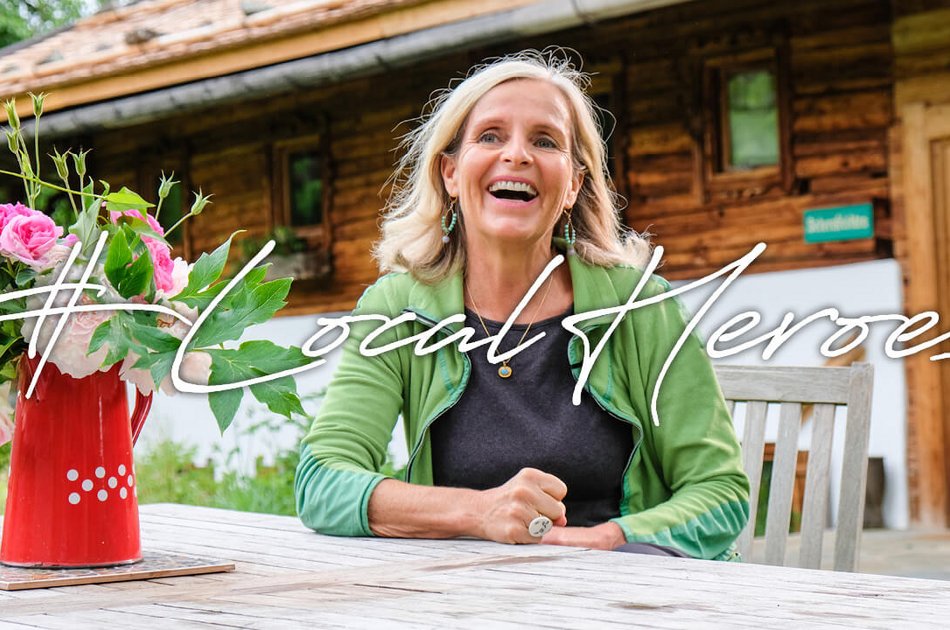
As a former Kitzbühel ski instructor, you have to make ski harnesses.
Barbara Schmidt
A passion for mediaeval cursive script
Barbara’s love of flowers and the Alpine garden is also reflected in her clay and porcelain work. She presses flowers collected from her garden into the wet clay and these pressed-in flowers are then painted over following the first firing. The result is always unique.
But it is not just flowers which decorate the crockery in the porcelain workshop. Colourful butterflies, rows of Kitzbühel houses, the Hahnenkamm gondola and skiers also feature on the crockery. The ‘Kurrent’ mediaeval cursive script which Barbara paints on using a quill before firing at over 1,000 degrees, is also unique. Barbara taught herself to produce this cursive script, as she explains. The 600-year-old farmyard still contains many old contracts written in the old script and sayings have also been written on items of furniture in this long-forgotten font – e.g. on the inside of cabinets. Now, sayings in the ‘Kurrent’ script also adorn cups, plates and much more!
I think it’s a great alternative. When I have run out of patience in the workshop, I head out into the garden and do something completely different.
Barbara Schmidt
Meconopsis and moonwort
One of Barbara’s favourite flowers in the Alpine flower garden is the blue poppy – meconopsis. There are many different varieties of this blue poppy. The plant from the Himalayas is not indigenous to Austria but feels very much at home in the Alpine flower garden. Moonwort too, an ancient plant which grows in poor soil, is one of Barbara’s favourite plants.
Alongside the Alpine flower garden, Barbara has set up her porcelain workshop which reflects her love of flowers, tradition and nature. It all started with a stay at an art school in South Africa. It was here that she discovered her passion for porcelain and clay working. Decades later, Barbara transformed her passion into a career and set up her own workshop.
There are approx. 400 different species of plants in the Alpine flower garden, both local and non-Alpine.
Barbara Schmidt
The Alpine flower garden
Barbara can be found in the Alpine flower garden on the Kitzbüheler Horn from May to October.
Most of the work required at the Alpine flower garden involves weeding, just like at home
Barbara explains.
The plants sown and cultivated by Barbara and her mother, Eva, in their own greenhouse are nurtured, verstupft and cared for during the winter months. During the summer months, the plants are carefully planted out in the Alpine flower garden and allocated the correct ‘name tag’.
I have been involved with the Alpine flower garden since the beginning. My parents, Eva and Toni Hofer, helped to establish the garden and I still look after it today.
Barbara Schmidt
Barbara Schmidt – bringing tradition to life
Barbara Schmidt lives with her family at her parents’ ‘Schernfeichten’ farm. The gardens of this cosy farm, which dates back over 600 years, are almost as wonderful and exceptional as the Alpine flower garden on the Kitzbüheler Horn. Barbara grows gentian, marigolds, bellflowers, vines, roses and lots of peonies here.
#LocalHeroes from Kitzbühel
It’s the people who make Kitzbühel and its holiday villages of Reith, Aurach and Jochberg so special. These are exactly the personalities we are talking about in our “LocalHeroes” series, in which the true heroes of our region are put in the spotlight. They would never call themselves heroes, but they are: Because it is only through their passion for what they do that we can all experience the unique Kitzbühel lifestyle.
![[Translate to EN:]](https://www.kitzbuehel.com/fileadmin/_processed_/5/a/csm_local-hero-barbara-schmidt-alpenblumengarten-c-kitzbuehel-tourismus-24-2022-12-07-093347_8e62ed8c76.jpg)
